Breaking: Bychkov names exit date at Czech Philharmonic
OrchestrasThe conductor Semyon Bychkov told his orchestra this morning that he will step back in 2028 after ten years as music director. Theirs has been the most successful musical partnership in the eastern half of Europe, with a fertile record deal and multiple tours.
Here’s what Bychkov said:
It’s been a remarkable season in every conceivable way, even if it is still continuing with enormous projects yet to come.
I will come back to it later, but first I would like to talk to you about some of the very special events that we have planned for the next season.
It is still the Year of Czech Music and so it will conclude with the release of the Dvorak’s last three symphonies and three tone poems. As you know our recording of Má vlast was released 6 weeks ago and received a rare unanimity of approval. In that same spirit of Czech music, we will conclude the year 2024 with three concerts at Carnegie Hall (a very rare privilege only given to the Berlin and Vienna Philharmonic orchestras) and 2 concerts in Toronto: Janacek’s Glagolitic Mass with our own choir, Mahler’s 5th Symphony, three poems of Má vlast and all 3 concertos of Dvořák will become a celebration of Czech musical culture and its legacy.
These concerts will be followed later by the residences in London, Vienna, Paris, Amsterdam, Brugges, and Cologne. They will be focused on the music of Mahler, Shostakovich, and Mozart.
Here in Prague, we will combine (not in the same performance!) two enormous masterpieces which are so related spiritually: Bach’s B minor Mass and Mahler’s 8th Symphony. Mahler’s performances will bring us to the completion of the recording cycle of his symphonies, which will have taken 7 years to realize.
And now allow me to come back to the most recent tours of Korea, Japan, and Europe. I do not recall receiving such positive intensity and unanimity of response for every single performance as we received on this tour. Audiences loved our Dvorak. They clearly felt the orchestra’s identification with his music, its performing tradition, and the joyful personality it exudes both on and off stage. People clearly experienced that Dvořák’s music was shared with them with an authenticity of spirit so unique, that it could only be conveyed by the Czech Philharmonic. You cannot imagine how much joy and pride I felt in my colleagues living for every note, every phrase in every moment of every performance. There was not a single concert that I would call substandard. Not even once did the fatigue associated with the difficulties and challenges of travel affect the performance.
Watching it, while also being part of it, brought me to a conclusion that the dream that I had when I started leading this orchestra 6 years ago – the dream of the Czech Philharmonic being part of the tiny group that make up the world’s orchestral elite and, making sure that the world knew it and recognized it – this dream has been realised.
When I was first asked by the musicians to become their next music director, following the untimely death of the beloved Jiri Bělohlávek, they also asked me to become their Daddy. And what is every Daddy’s mission? To help his children grow up well, secure, and independent, so that eventually they become free. Like birds getting their wings to fly.
This is what has been happening, and much faster than any one of us ever anticipated. This is what made me come to the happy conclusion that my mission has been accomplished. When that became clear, it was only natural that, in 2028, after 10 years of leading this orchestra, the time will have come for me to step back as its chief conductor and music director.
Why am I sharing this with you today, with 4 more years ahead of us? For a very simple reason. In today’s music world plans are made a long time in advance. The 4 coming years will allow my colleagues to ensure that the next chapter in their life will be a harmonious and organic evolution, as will the next chapter in mine.
We have planned many very exciting projects for the next several years, and this orchestra will continue to be as much the artistic centre of my life as it has been since day one.

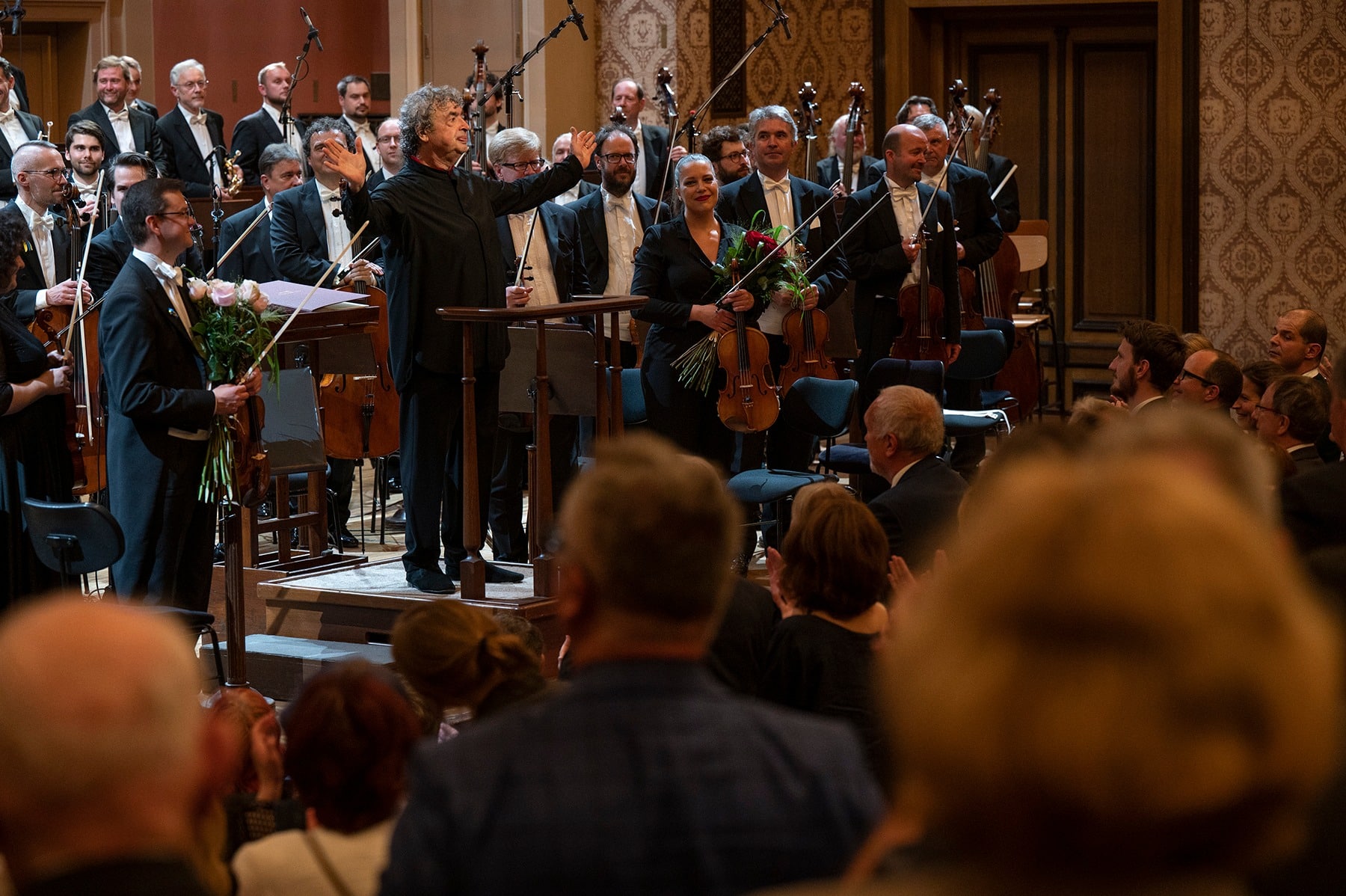
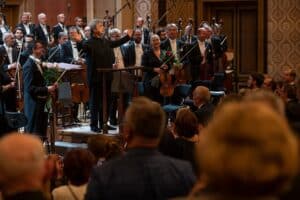
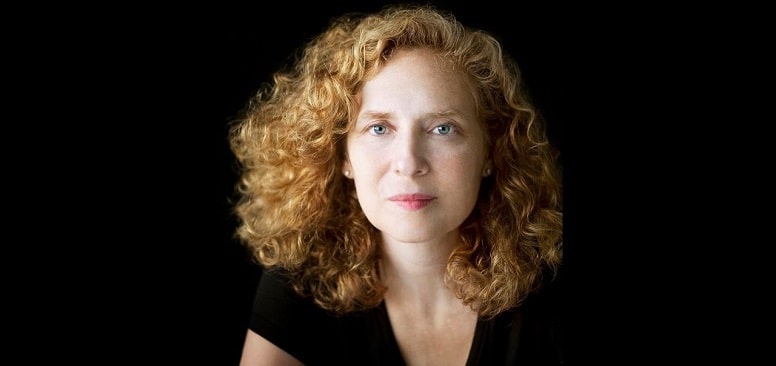

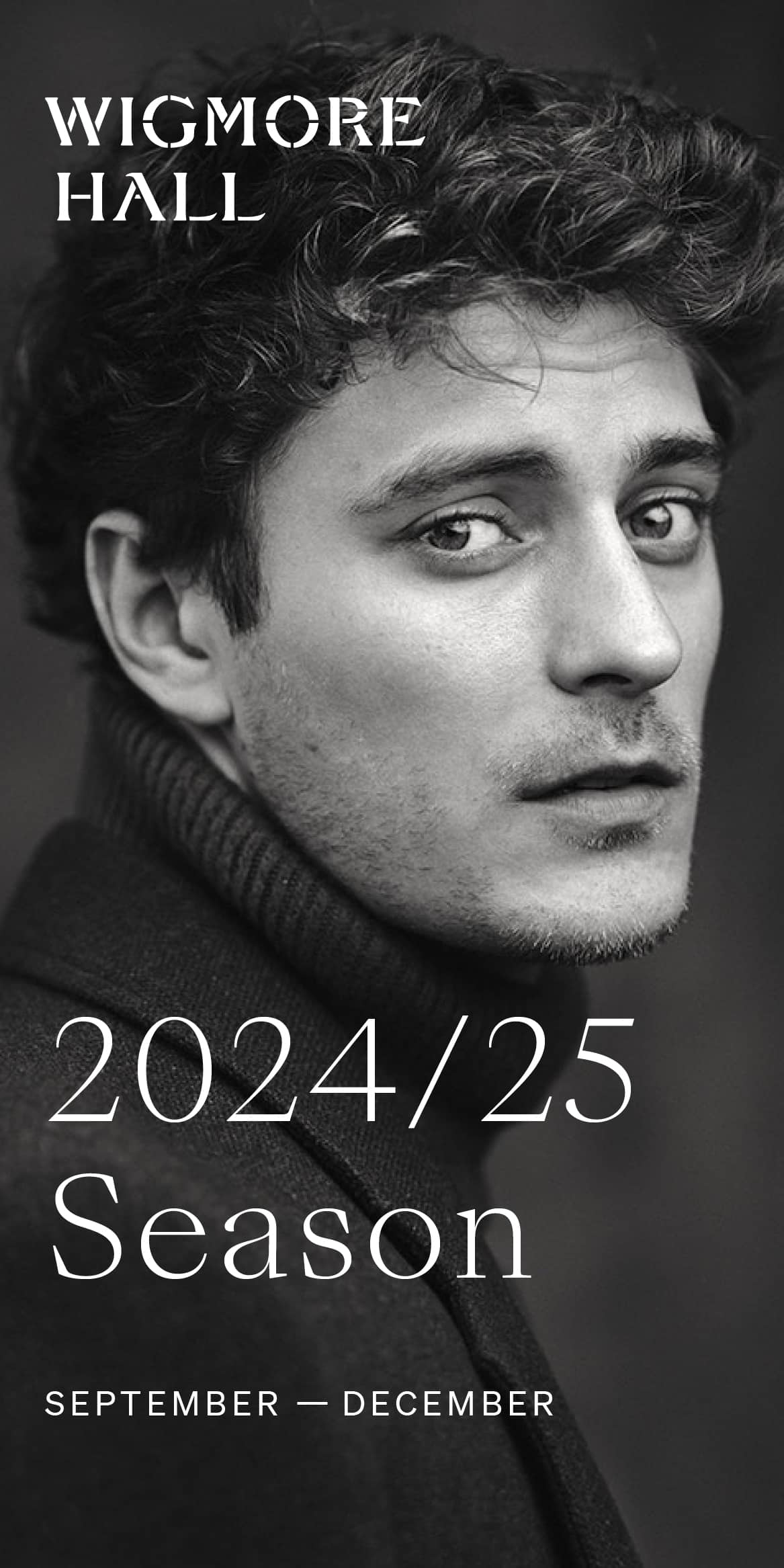
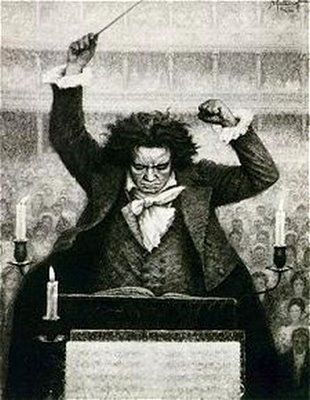
A sensitive letter from a sensitive musician.
Bravo Maestro!
I thought the Czech Philharmonic was already part of the tiny group that make up the world’s orchestral elite.
In the 1960s, maybe. Long gone.
I have seen Bychkov twice with this orchestra last month for a Dvorzak double program. This orchestra today has a place without doubts in the top 15 maybe 10 in the world.
“… to become their Daddy”; “…To help his children…”.
Aspiring conductors, please do not adopt this extraordinarily patronising and hubristic view of the musicians in front of you! The possibility exists that you have some exceptional musical ability and insights from which some of us can learn all of the time, or all of us some of the time; even if so, that does not put you in loco parentis, or make you a superior human being in and of itself.
Good grief, lighten up.
Also consider that the translation is probably terrible.
Bychkov doesn’t speak Czech so unless it was translated to Czech and then back to English, that’s probably what he said. But just take it as he was a friend of the orchestra before Jiri Belohlavek died, stepped in to take over after that – having previously indicated he wouldn’t take another directorship – and is grateful for their time together.
I’d agree, but…when the players first approached him to ask him if he’d be interested in a position, one of the players LITERALLY asked him to be their daddy as a joke. Bychkov found that very sweet and repeats the story at every possible occasion.
And I can’t really agree that Bach’s Mass in B minor and Mahler’s 8th Symphony are “so related spiritually” — except in the most obvious sense that they both arise from West European Christianity.
He will be succeeded by Hrusa. You heard it first on SD.
I sure hope so.
This is quite likely. Plus, Hrůša has been recording for all sorts of commercial record labels.
Here, in Israel,we still remember the unforgetable concert of IPO conducted by maestro Bychkov after 7.10.24
So Jakub Hrůša will take over a new orchestra as chief conductor in 2028.
Who’s betting against me?
Alondra de la Parra has been doing a lot of Dvorak and Brahms recently! And what better than a young exciting women conductor to re-energise and modernise the image of this traditional orchestra
Does she speak Czech? And what’s wrong with being a traditional orchestra?
Does Bychkov speak Czech? Did Simon Rattle speak German at the beginning of his tenure in Berlin?
He doesn’t speak Czech. They surely work in English, as I’m sure they do with most of their guest conductors.
Sir Simon spoke enough German to rehearse at the beginning of his Berlin tenure, not enough to give a decent speech. Not sure how much he improved.
She will take over Barcelona opera House
Classical lover, I know your comment was intended as a joke. (As is everything related to ADLP.) And I definitely laughed!!
Next: You should start the rumor the ADLP is being whispered to be the next music director of the Vienna Philharmonic.
(except they don’t have one, although de facto they have two)
Classical lover, read the room. De La Parra is acknowledged by most musicians as being a terrible conductor.
but…but…Alondra can now conduct Brahms! and Dvorak!
(and she’s starting on Beethoven very soon!)
[And by the way, congratulations to Alondra’s new PR firm – they’re certainly doing her a tremendous service, getting her name out there every way they can!]
He’s not a young man so that’s not surprising. It gives the orchestra a long time to find a successor, though Jakub Hrusa seems inevitable; he’s basically been groomed for the job for years.
I do wish the Czech Philharmonic when on tour would play less Dvorak (at least less of the last three symphonies) and more Janacek, Martinu, and Mahler. Their programming at home is usually far more interesting than what you see of them on the road. But presenters are a risk-averse bunch.
Indeed so. But fortunately they will be doing the Glagolitic Mass at Carnegie Hall.
I was really fortunate to sing in his performance of Glagolitic Mass with the Czech Phil at last years Edinburgh Festival. A fabulous and very likeable conductor and a brilliant orchestra
The home of the BRSO is the Herkulessaal in the Residenz, a former royal palace of the Wittelsbach monarchs of Bavaria. And has been for over half a century. It has excellent acoustics. Munich already has the Gasteig and the Isar Philharmonie among other halls. It’s the usual story of elite orchestras demanding expensive architectural monuments to their own glory while other artists are starved.
Orchestras deserve to have halls with great acoustics. Halls with great acoustics don’t have to be part of a pharaonic palace, new or old.
I can’t speak about the situation in Munich, although over the years I have had the privilege to enjoy quite a few wonderful concerts at Herkulessaal, including some with the BRSO.
Sorry, I posted on the wrong blog entry. Perhaps it can be moved.
“Their has been the most successful musical partnership in the eastern half of Europe.”
First of all, Prague is West of Vienna. Second, with due respect to their indeed successful musical partnership, aren’t we forgetting Ivan Fischer and the Budapest Festival Orchestra?
Czech philharmonic doing Dvorak, Smetana and Mahler, how bold! Who would have thought….
In our global village, many orchestras sound the same. The Czech Philharmonic one of the great exceptions. Their ability to play idiomatically music from their land is to be cherished.
Moreover, Dvorak’s tone poems are prime examples of underperformed wonderful music. If only 1/3 to 1/2 of all performances of the New World symphony were substituted with tone poems.
Not that the New World Symphony is not a masterpiece. But these days many orchestras perform only the greatest hits by the great composers of the 18th and 19th century canon, and get adventurous only with 20th and 21st century music.
I particularly like the 3rd symphony. But Dvorak couldn’t write a bad tune; a lot more of his music should be played. And less of the last three symphonies.
Yes, all Dvorak’s tone poems could make a nice full evening, and are well contrasted to make it interesting and not keep people bored.
Or you can choose and make an interesting program with other music. I remember some years ago when the Philadelphia Orchestra (a marvelous Dvorak orchestra) sandwiched Bartok’s Viola Concerto and Enescu’s 2nd Romanian Rhapsody between The Wood Dove and Golden Spinning Wheel.
Conductor was Rossen Milanov, who is one of the few maestros to have the Goossens / Beecham Messiah in his repertoire – I heard him doing this twice in Washington!
P.S., and related to what you said: I remember Rossen Milanov saying that he wanted to do a similar program for a long time, but he only after being on the staff of the Philadelphia orchestra for a few years (don’t remember whether as associate or assistant conductor, but doesn’t matter) and conducting a number of subscription concerts he was finally allowed to program the pieces (I do hope I am not putting words in Mr. Milanov’s mouth, since it’s been a long time, but I do seem to remember this). I recall the concert being decently attended.
But then, can we blame the management for not wanting to take risks? I remember that when David Zinman programmed Goldmark’s Rustic Wedding Symphony in New York, the number of spectators was significantly lower in the second part of the concert, when Goldmark’s piece was played, than in the first part when Mitsuko Uchida played Chopin. People were not even willing to give Goldmark a chance, even when they had tickets.
I don’t understand what constitutes a safe program. Risk is relative. Why is Goldmark riskier than any contemporary composer? Are less well known gems by the most popular composers riskier than the warhorses?
Also, why are “challenges” only to be found in contemporary music? Is a close listening to Strauss’ Metamorphosen less challenging emotionally and technically? Is Mendelssohn’s Elijah easy listening?
There is no single program that can satisfy all audiences. I’ve seen people leave after a contemporary work and skip the mainstream romantic work of the second half.
Personally I am deeply unhappy with the common format of mixing different styles. I prefer focus on one style, or even one composer. But programs along the latter lines usually line up repertory staples.
The year of Czech music should mean more than just Smetana and Dvorak. Distinctly unadventurous and Bychkov has barely dipped into the wider Czech repertoire.